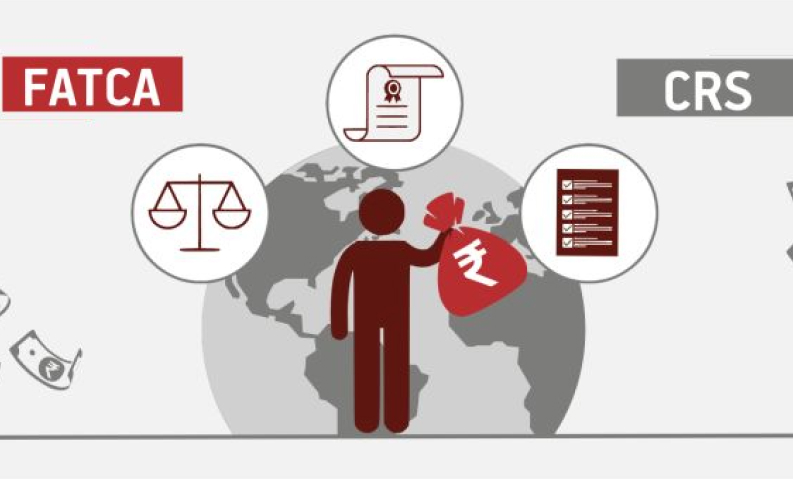 WhatsApp
WhatsApp
 Call Us
Call Us
 Email Us
Email Us
 Whatsapp Community
Whatsapp Community

In our rapidly globalizing world, governments and financial institutions are increasingly vigilant in their efforts to combat tax evasion and money laundering. Two pivotal initiatives on this front are FATCA (Foreign Account Tax Compliance Act) and CRS (Common Reporting Standard).
FATCA - A Crucial Tax Evasion Deterrent
The U.S. government introduced FATCA in 2009, with its primary objective being the prevention of U.S. citizens from stashing their wealth outside the United States to evade taxation. Under FATCA, the U.S. government has forged agreements with numerous countries, mandating the sharing of investment details by U.S. nationals.
FATCA Implementation in India
In 2015, the Indian government committed to implementing FATCA through an inter-government agreement with the United States. This agreement has significant implications for NRIs (Non-Resident Indians) residing in the USA who invest in Indian assets. Such investors are obliged to adhere to FATCA laws, which necessitate financial institutions to report account details held by U.S. taxpayers. Additionally, NRIs in the USA must provide self-declarations when making investments in India to comply with FATCA.
Mandatory FATCA Compliance for U.S.-Based NRIs
Indian authorities have made it compulsory for all NRI investors from the USA to confirm FATCA compliance using Form 61B, in accordance with Rules 114F and 114H of the Income Tax Rules, 1962. Alternative procedures are also available for compliance.
Who Does FATCA Apply To?
FATCA encompasses various individuals residing in the USA, including:
Investments and Assets Covered by FATCA
FATCA's reach extends to a wide range of investments and assets, including:
Investments: This category encompasses Indian investments such as fixed deposits, public provident funds, stocks, mutual funds, bank interest, capital gains, and retirement contributions.
Bank Accounts: NRE (Non-Resident External), NRO (Non-Resident Ordinary), and FCNR (Foreign Currency Non-Resident) accounts held by NRIs are subject to FATCA reporting.
Details Required for FATCA Declaration by NRIs
While specific requirements may vary slightly among financial institutions, the standard information typically needed for FATCA compliance includes:
a. Name b. Permanent Account Number (PAN) c. Address d. Place of birth (city/state) e. Country of birth f. Nationality g. Gross Annual Income h. Occupation i. Resident status in another country (if applicable), along with details such as country of residence, Tax ID number, and type.
By complying with FATCA regulations, NRIs contribute to global efforts to curb tax evasion and promote financial transparency






